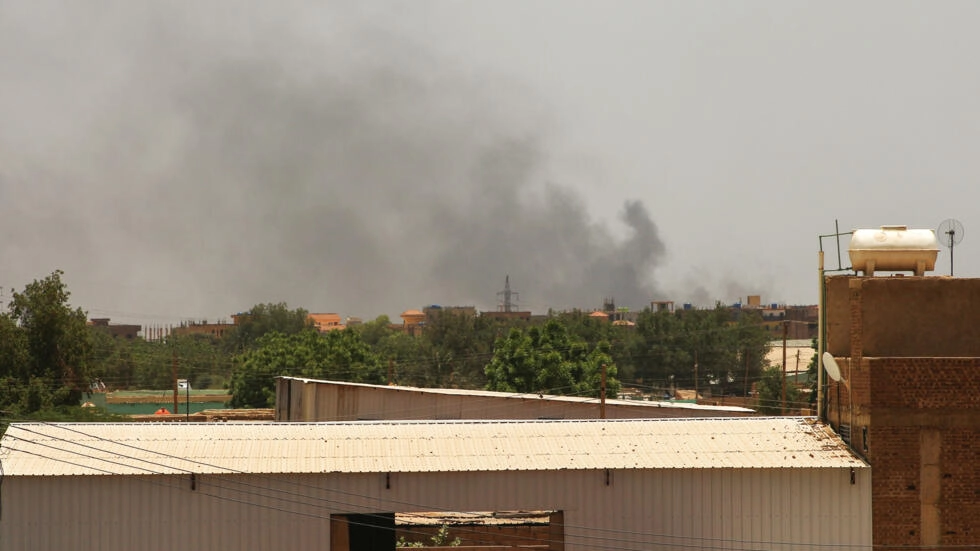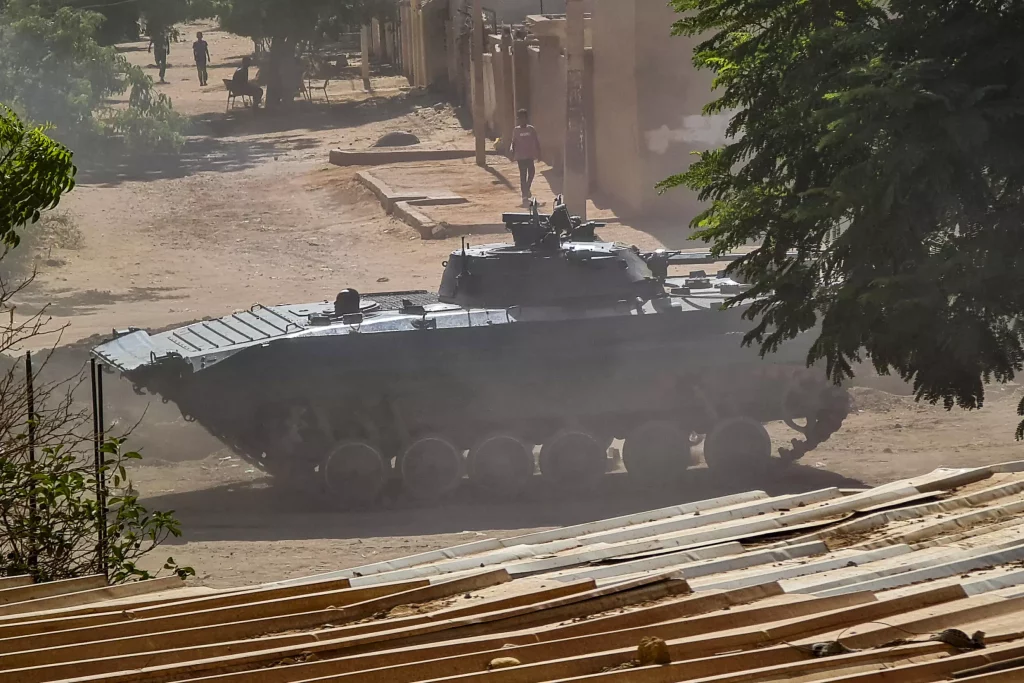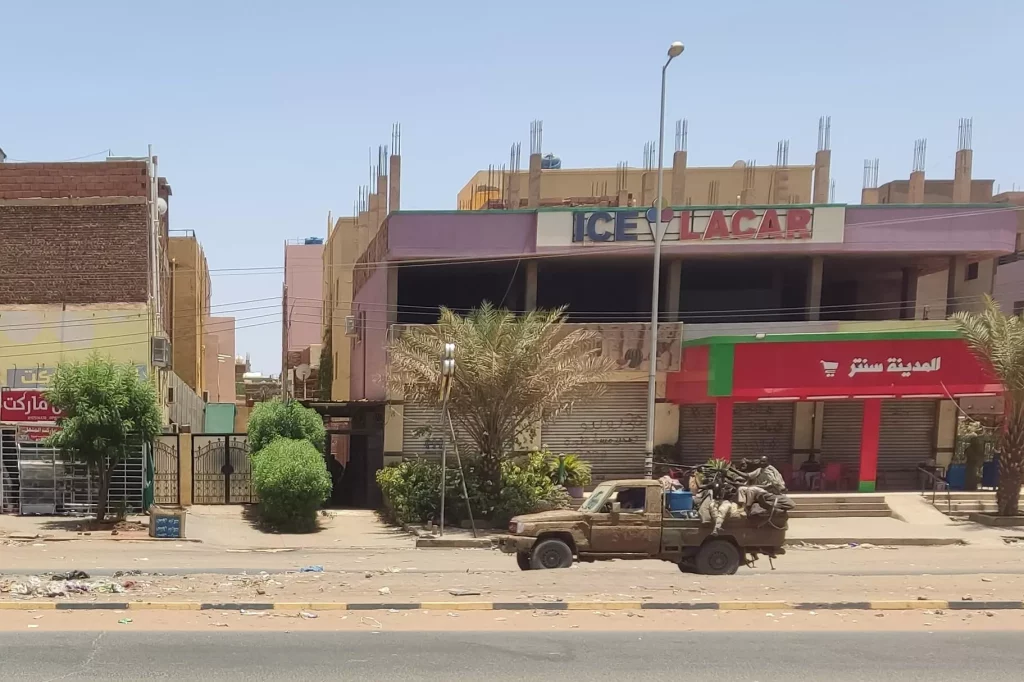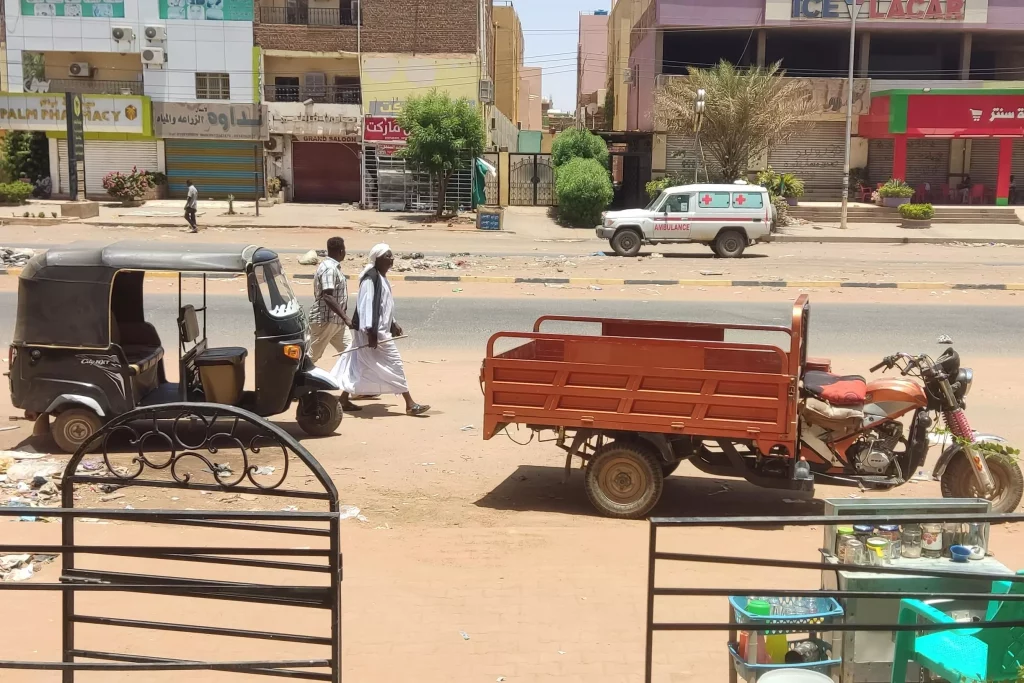
Khartoum-Alyurae- (AFP) – Gunfire and explosions rocked Khartoum today Monday, hours before a one-week humanitarian ceasefire was to take effect after a series of previous truce announcements were all violated.
The United States and Saudi Arabia on Sunday announced that the ceasefire agreed between the rival camps would take effect at 9:45 pm (1945 GMT) Monday to enable humanitarian assistance to civilians.
Unlike truces previously announced, the US and Saudi said this one is different because it was “signed by the parties” and will be supported by a “ceasefire monitoring mechanism”.
Desperate residents voiced hope that the new agreement would stem the brutal warfare that has shaken the capital Khartoum and other parts of the impoverished country, particularly the western Darfur region.
Fighting erupted on April 15 between the army, led by Sudan’s de facto leader Abdel Fattah al-Burhan, and the paramilitary Rapid Support Forces commanded by Burhan’s former deputy Mohamed Hamdan Daglo.
The two sides on Sunday affirmed that they would respect the ceasefire, which was welcomed by the United Nations, African Union and East African bloc IGAD.
According to a text of the agreement released by the US, warring sides were to use the two days before it takes effect Monday night to “inform their respective forces” about it and “instruct them to comply.”

Both sides also “conveyed to the Saudi and US facilitators their commitment not to seek military advantage” during the 48 hours leading up to the ceasefire, a US-Saudi statement said.
But for the 37th consecutive day, the capital of five million awoke Monday to the sound of air strikes and anti-aircraft fire, said witnesses, as the city endures sweltering heat and only intermittent water and power supplies.
“Fighter jets are bombing our neighbourhood,” Khartoum resident Mahmoud Salah el-Din told AFP. “We have seen no sign that the Rapid Support Forces are preparing to withdraw from the streets.”
While government forces control the skies they have few men on the ground in the centre of Khartoum, where RSF are on the streets.
Around 1,000 people have been killed and more than a million displaced in the more than five weeks of violence that have plunged the already poverty-stricken country deeper into humanitarian crisis.
‘Save myself’
Despite the previous breached truces, war-weary civilians clung to hope that the upcoming ceasefire would hold, allowing desperately needed aid to bolster the dwindling supplies of food, medicine and other vital resources.
For residents like Khaled Saleh, who lives in the capital’s twin city of Omdurman across the Nile, the latest truce pledges could be a lifeline.
“With a ceasefire, running water can be restored and I will finally be able to see a doctor because I am supposed to see one regularly for my diabetes and high blood pressure,” he told AFP.

Medics have repeatedly warned that the health care system is on the verge of collapse in Khartoum and elsewhere, particularly Darfur.
The UN has reported hundreds of civilians killed in the West Darfur capital El Geneina.
Intense fighting in Nyala, the capital of South Darfur, killed 28 people last week, according to the doctors’ union, which warned its numbers are conservative as many of the wounded cannot reach hospitals, most of which remain out of service.
“If the truce holds, I will leave Nyala in order to save myself and my livelihood,” said Othman al-Zein, a shop owner in Nyala market, which has been repeatedly attacked and looted.
“Although I doubt it will be implemented across Sudan,” he told AFP.
The ceasefire agreement to take effect Monday night includes as “an integral part” an earlier pact, signed by the warring parties on May 12 in Jeddah, to respect humanitarian principles and allow in badly needed aid.
But the May 12 deal was already violated, according to the UN which reported “at least 11 attacks against humanitarian premises in Khartoum, and four new attacks against health facilities” since May 12.

The UN’s envoy to Sudan, Volker Perthes, was to brief the Security Council on the situation in the country later Monday.
Burhan and Daglo in October 2021 jointly staged a coup that derailed a fragile transition to democracy put in place after the 2019 overthrow of former autocrat Omar al-Bashir.
But they later fell out in a bitter power struggle, including over the integration of the RSF into the regular army.




